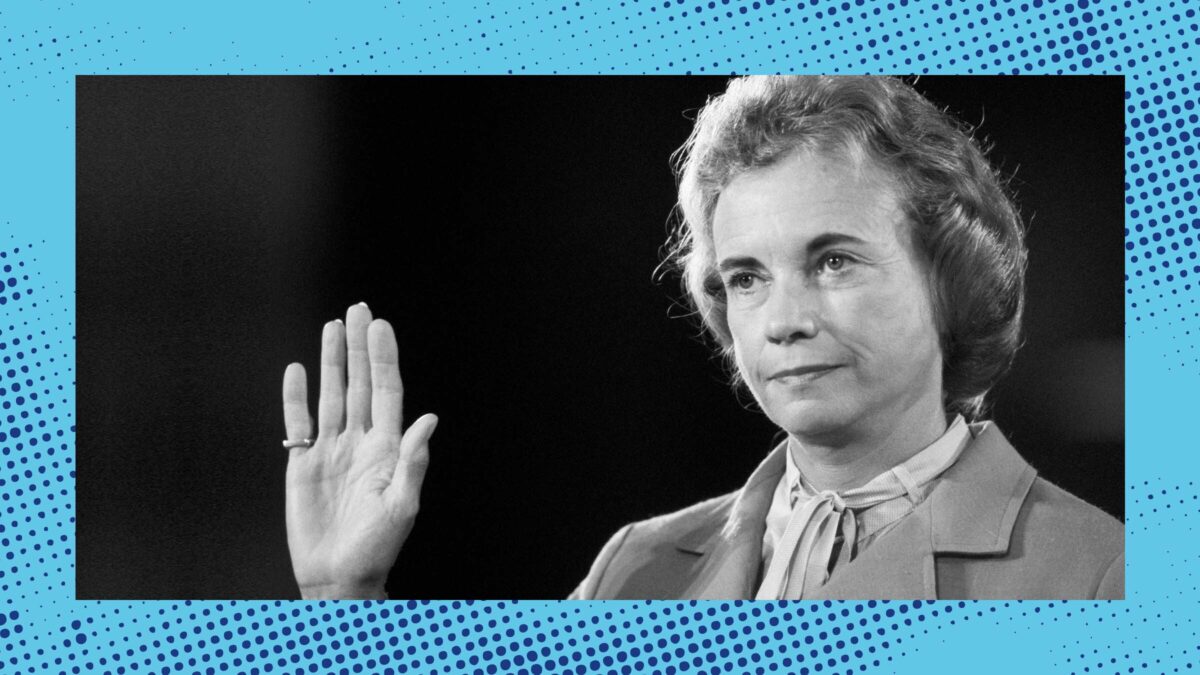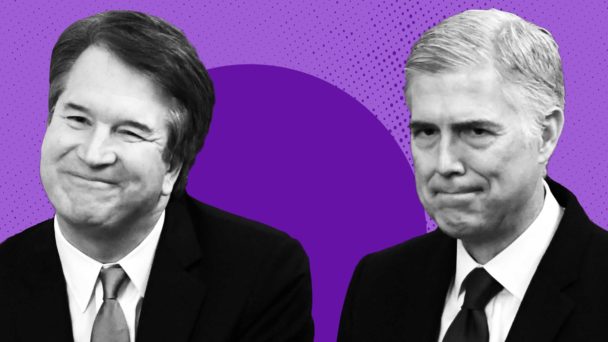On November 5, 1995, Leandro Andrade walked into a Kmart in Ontario, California, and tried to steal copies of five kids’ movies, including Snow White, Casper, and The Fox and the Hound. A security guard stopped him, and police arrested Andrade for shoplifting.
Two weeks later, Andrade walked into a different Kmart and picked up four more videotapes: this time, Free Willy 2, Cinderella, The Santa Clause, and Little Women. Again, he was apprehended and arrested. A military veteran and father of three, Andrade said the movies were supposed to be gifts for his nieces and nephews. Together, their retail value was about $150.
At the time in California, a first-time offender in Andrade’s shoes would normally face a penalty of up to a year in jail. Andrade had been previously convinced of a handful of nonviolent theft- and drug-related charges. With his record, if he’d tried to steal the videotapes just a few years earlier, he’d have been looking at a prison term of up to three years and eight months—about five months for each tape.
Andrade, however, was sentenced at the peak of the tough-on-crime panic that dominated American politics in the 1990s. A year earlier, California had become one of some two dozen states to enact a “three-strikes” law, which imposed progressively harsher punishments on so-called repeat offenders. Suddenly, a third felony conviction, even for a crime like petty theft, triggered a potential sentence of 25 years to life. (The district attorney in San Bernardino County, Dennis Stout, had the option to charge Andrade with a misdemeanor in order to avoid a three-strikes sentence. Stout, who called Andrade “a scoundrel who has had his chances,” sought the maximum penalty instead.)
Incredibly, the circumstances of Andrade’s offense yielded an even more brutal outcome: Remember, he had tried to shoplift on two separate occasions from different Kmart stores. Thus, a judge decided to sentence him to two 25-to-life sentences, to be served consecutively. Andrade, a 37-year-old man who’d never committed a violent crime, would not be eligible for parole until 2046, when he’d be 87 years old.
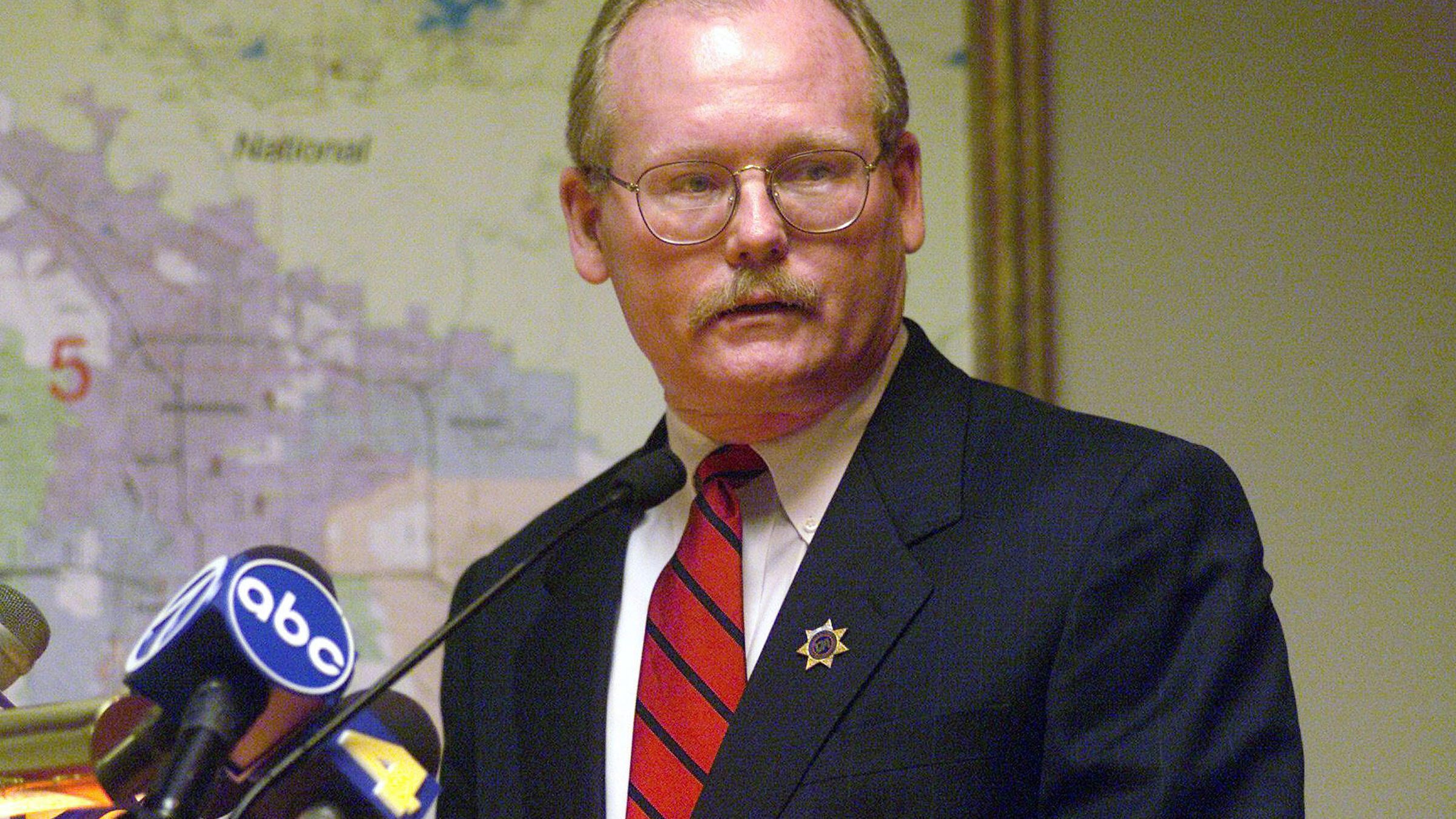
Dennis Stout in 1999 (Photo by Peter Phun/MediaNews Group/The Press-Enterprise via Getty Images)
Andrade’s appeal eventually reached the U.S. Supreme Court, which heard his case alongside that of Gary Ewing, another three-striker who’d been sentenced to life for stealing a few golf clubs from a Los Angeles-area course in March 2000. Both men asked the justices to decide essentially the same question: whether the Eighth Amendment’s prohibition on cruel and unusual punishment should prevent the government from sentencing you to life in prison for stealing a few hundred dollars’ worth of merchandise.
Twenty years ago this month, the Court said no. In her majority opinion in Lockyer v. Andrade, Justice Sandra Day O’Connor concluded that Andrade’s sentence was not “objectively unreasonable.” Although she allowed for the possibility that some sentences might be “grossly disproportionate” to the crime, she said that such sentences would be “exceedingly rare” in light of the legislature’s “broad discretion” in setting criminal penalties. The standard for when a sentence violates constitutional rights might be fuzzy, sure, but a majority of the Court decided that Andrade’s did not meet it.
Writing for the four liberals in dissent, Justice David Souter called Lockyer’s punishment “the rare sentence of demonstrable gross disproportionality.” Andrade was represented by now-Berkeley Law Dean Erwin Chemerinsky, who wrote extensively about the experience in his 2010 book, The Conservative Assault on the Constitution. As Chemerinsky points out, this result allowed California to punish Leandro Andrade more harshly for trying and failing to steal nine videotapes than it would have if he’d been convicted of rape, voluntary manslaughter, second-degree murder, or sexual assault of a minor.
“If Andrade’s sentence is not grossly disproportionate, the principle has no meaning,” Souter wrote.
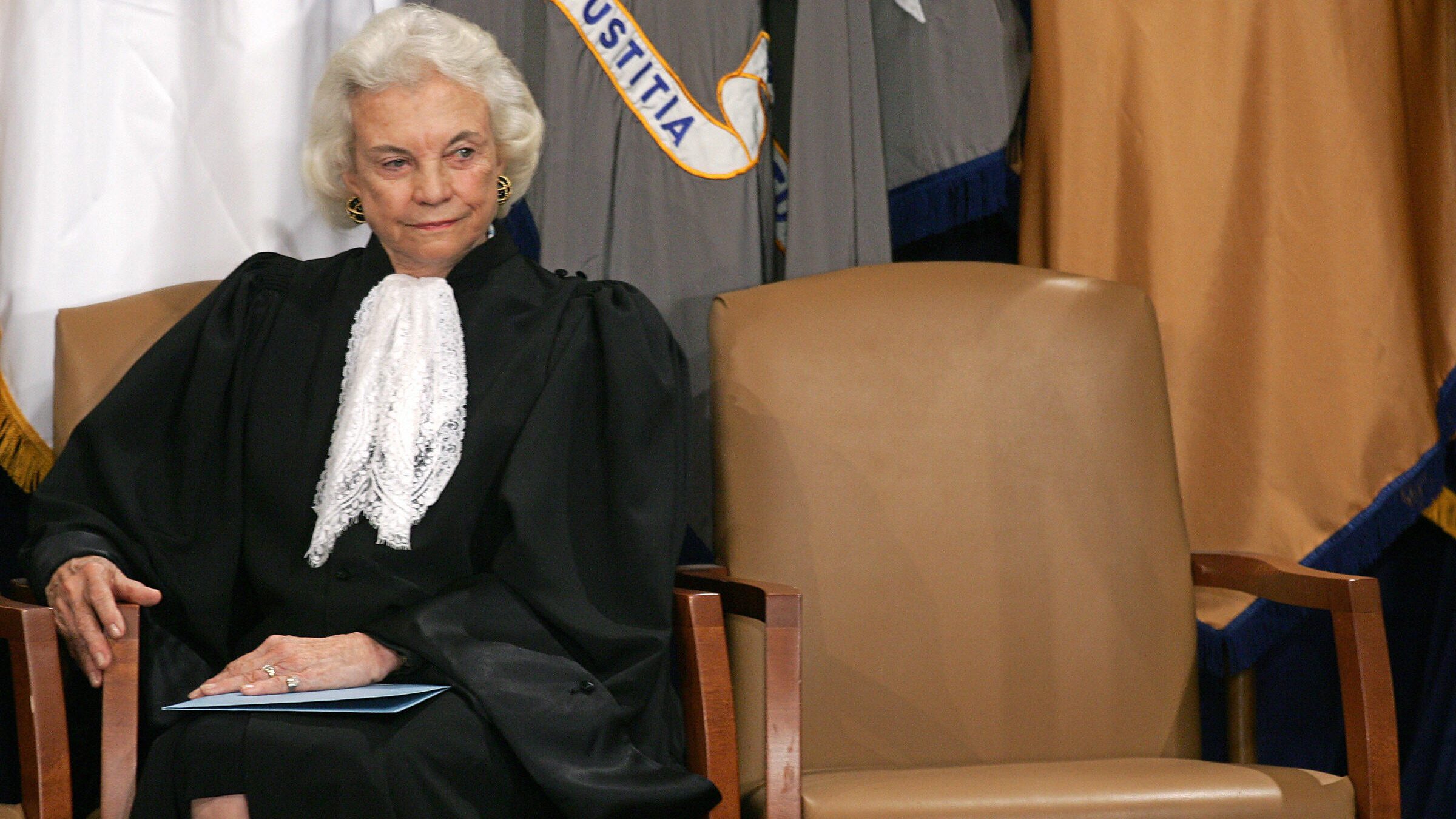
(PAUL J.RICHARDS/AFP via Getty Images)
Many Supreme Court cases are policy disputes disguised as esoteric legal questions, but the sleight-of-hand is never clumsier than when the justices spend page after page attempting to divine what “proportionate” means. In Lockyer and Ewing v. California, which the Court decided the same day, most of the justices agreed that a sentence could be cruel and unusual; they just disagreed about how cruel or unusual it must be to merit intervention. (I say “most” because Justice Clarence Thomas wrote separately in Ewing to opine that the Eighth Amendment contains no “proportionality principle” at all, thus leaving open the possibility that lawmakers could one day impose even longer prison sentences for stealing even fewer children’s movies, if they were so inclined.)
The issue in Lockyer and Ewing is, in other words, fundamentally one of policy. And although O’Connor frames her conclusions as deferential to the discretion exercised by lawmakers, the opinions make clear that she agreed with their choice. Much of her rhetoric would not be out of place in the stump speech of any mid-90s candidate straining to portray himself as tougher on crime than his opponent: Three-strikes laws, she wrote in Ewing, target “career criminals” who “must be isolated from society in order to protect the public safety.” Ewing’s sentence, she continued, was the product of a “rational legislative judgment…that offenders who have committed serious or violent felonies and who continue to commit felonies must be incapacitated.”
Andrade didn’t lose because O’Connor’s Eighth Amendment analysis was “better,” in any meaningful sense of the word. Andrade, and millions of other people facing unconscionable prison sentences, lost because the conservative justices had the votes to infuse constitutional law with their own feelings about crime and punishment.
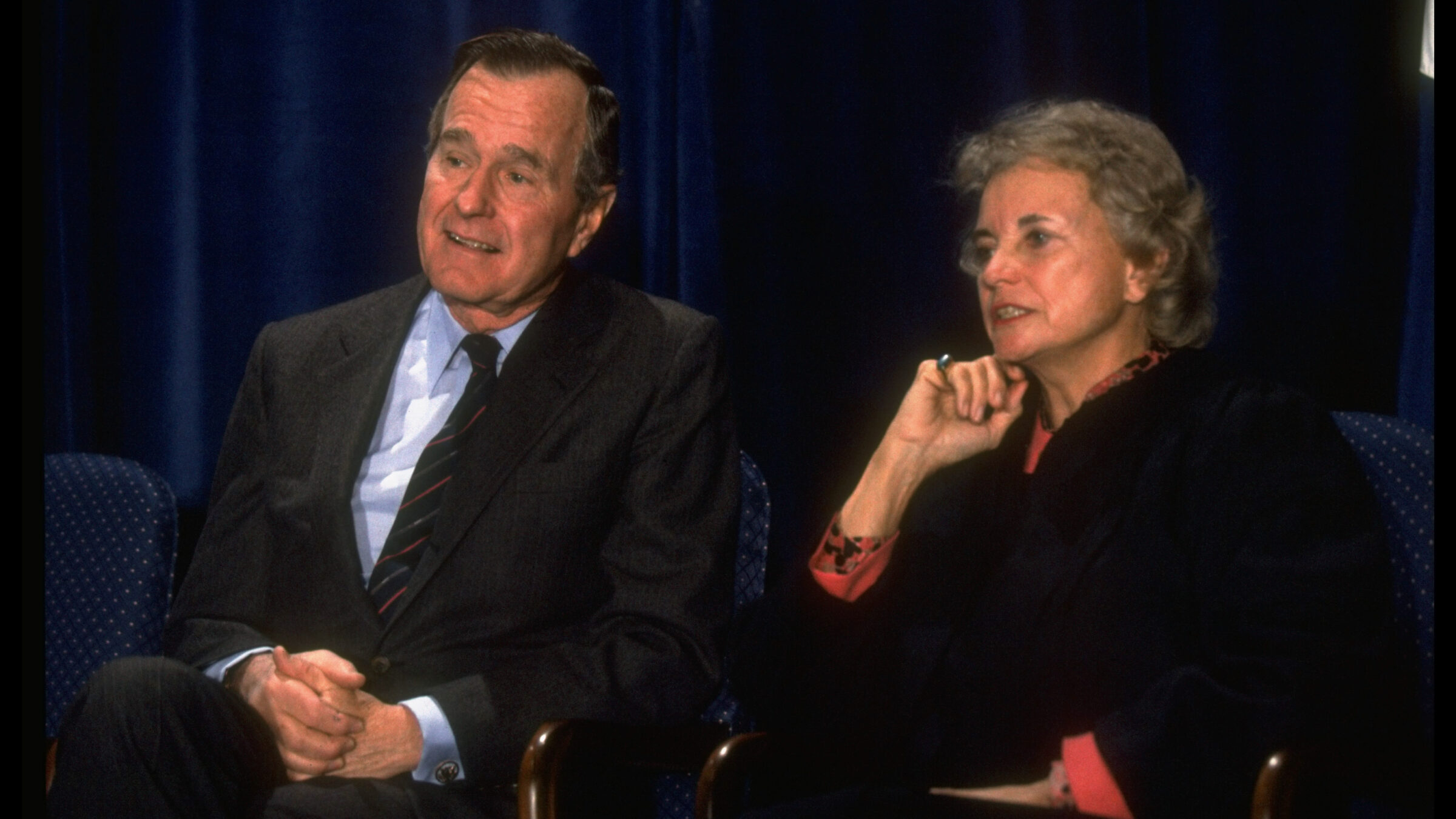
(Photo by Diana Walker/Getty Images)
The policy the Court blessed in Andrade and Ewing is a failure by almost any metric. California’s three-strikes law had no proven impact on public safety. It has, however, wasted countless lives and millions of dollars in public resources. Among the law’s victims are people who were convicted of stealing socks, or children’s shoes, or food from a soup kitchen, or loose change from a parked car. Nearly half of California’s third-strikers are Black in a state that is just six percent Black. As of January 2022, the median age of third-strikers was 56 for offenses that were committed at age 35, according to an analysis by the California Policy Lab. An estimated 95 percent of people who have spent more than 20 years in prison are rated low-risk to reoffend, which means that Californians are paying to lock up people who are basically too old to hurt anyone, if they were ever threats to do so in the first place.
In 2012, California voters passed Proposition 36, an initiative that softened the law’s impact by, among other things, limiting life sentences to people whose third strike is a “serious or violent” felony. People sentenced for minor offenses were allowed to petition the court for new sentences; Leandro Andrade did so successfully, and was released shortly after Prop 36’s passage. Even so, the California Policy Lab found that as of 2022, about 1,500 people sentenced to life for non-serious, non-violent felonies were still in prison.
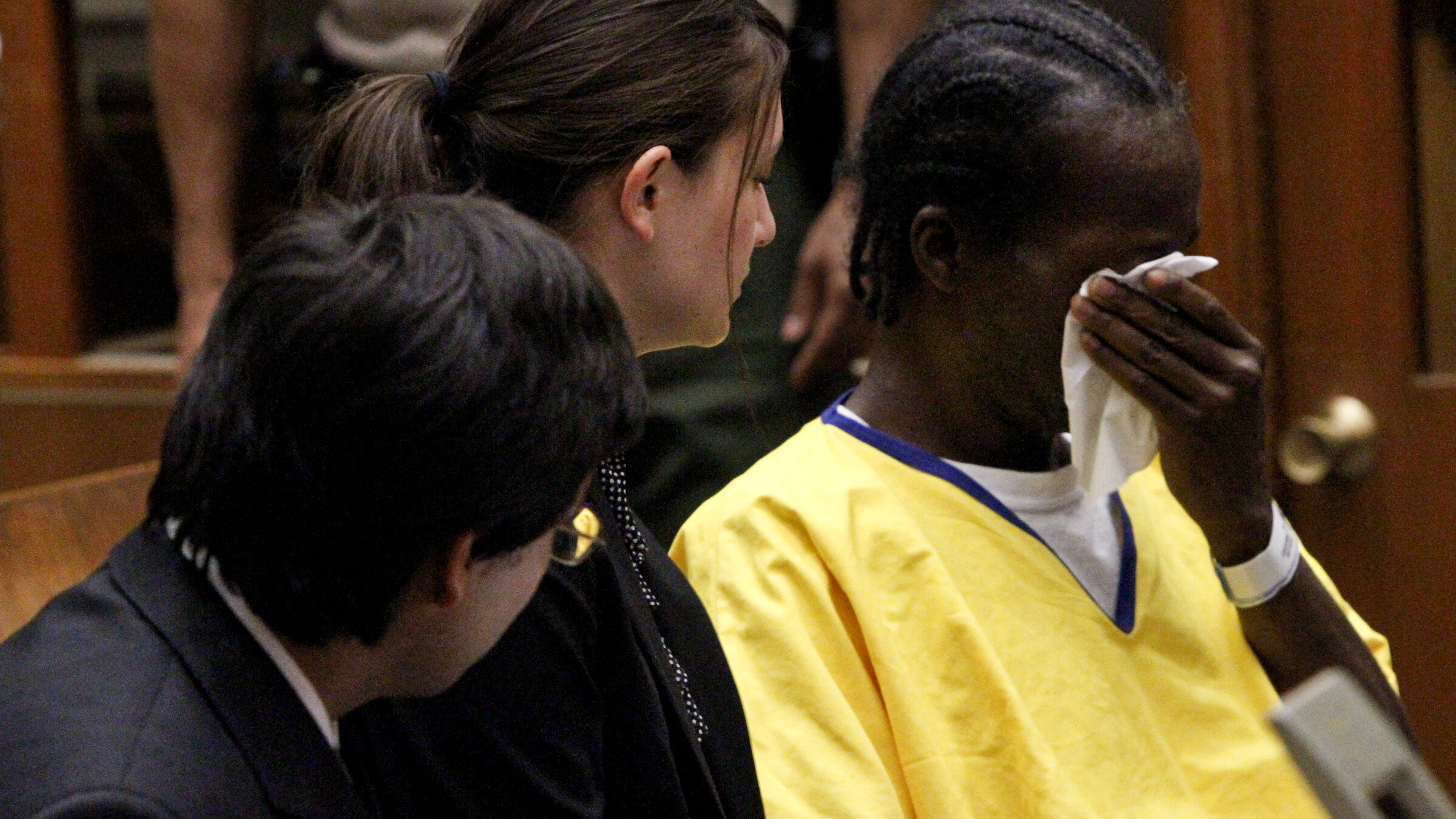
Gregory Taylor wipes away tears during hearing in a Los Angeles courthouse, August 16, 2010. Taylor was sentenced to life for breaking into a soup kitchen to steal food. (Photo by Anne Cusack/Los Angeles Times via Getty Images)
At his sentencing hearing in 2002, Gary Ewing was already battling AIDS. By the time a group of Stanford Law School students visited him in 2010, Ewing, whom the state had decided to incarcerate for the rest of his life, was blind and confined to a wheelchair. After losing his sight, he’d asked to sleep in a bottom bunk; the badly overcrowded prison denied his request. Ewing died in 2012, just months before Prop 36 would have given him a chance at spending the end of his life outside a prison’s walls.
The words of the Constitution do not mean anything unless the judges who enforce them say so. It is not difficult to imagine a Supreme Court that takes seriously its obligation to prevent the bloodthirstiest urges of fearmongering reactionaries from condemning shoplifters to die in prison. Nor is it hard to imagine a judiciary that treats every reflexive expansion of the carceral state with, at the very least, a healthy degree of skepticism. Instead, the five most powerful lawyers in the country looked at the plight of people like Leandro Andrade and Gary Ewing, shrugged, and declared themselves powerless to do anything about it.
